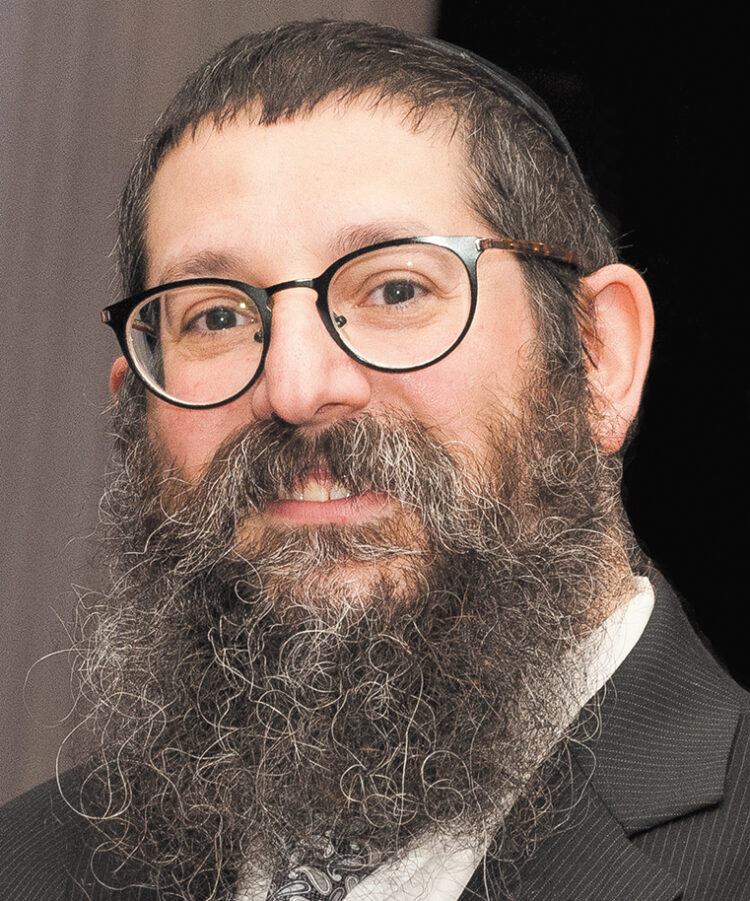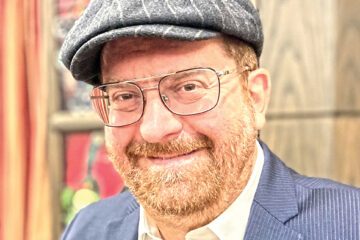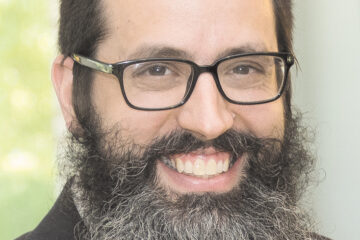Embracing our particularity & uniqueness

By Rabbi Nochum Mangel
Chabad of Greater Dayton
An old Jewish joke describes all Jewish holidays in a few words: “They tried to kill us. They failed. Let’s eat.”
Just as our enemies were not the same, the way they tried to kill us was different as well. Our enemies varied, and their means of getting rid of us differed too.
On Jan. 27, the editorial board of the Louisville Courier-Journal published an opinion headlined, Holocaust Remembrance Day is a time to remember more than one atrocity.
You can commemorate International Holocaust Memorial Day, they said, but “only as a day commemorating every genocide that is carried out upon any group based on skin color, religion, gender identity, and ethnic background…Jews do not have a monopoly on persecution and atrocities.”
“Hitler was just one of many dictators,” they wrote. They argued that “if we as a community only focus on one religion, only on one event, we are denigrating and trivializing the horrors of the past and the injustices of today.”
Commonly, antisemitism is understood as hatred, prejudice, and hostility directed at Jews as a distinct people, nation, or race.
Then there is religious antisemitism or anti-Judaism, when the animosity and resentment are directed at Jews for their Jewish beliefs and practices. These haters can live with Jews as a people, but demand that we dive into the melting pot, shed our Jewish identity, and assimilate into the majority culture. They accept Jews whose Jewishness is not obvious, but not Jews who insist on being particularly Jewish.
Throughout our long and storied history, we have examples of both kinds of hatred.
Pharaoh feared that we would overthrow him, so he enslaved us and drowned our children in the Nile, hoping to demoralize and weaken us through hard labor. Pharaoh saw us as a threat to his throne.
Amalek simply hated us. Although we were not threatening him on our journey from Egypt to Sinai, Amalek couldn’t tolerate seeing free Jews as an independent nation, so he attacked from behind, targeting the weak and the most vulnerable. His animosity was plain unvarnished Jew hatred.
In the story of Purim, Haman resented the Jews because we wouldn’t accept him and bow to him as a god. So, infuriated, he devised a genocidal plan to annihilate all the Jewish people — women, men, and children — a plot foiled by Queen Esther. Haman loathed Jews. We were different and, therefore, not valuable. To him, we were intolerable.
The Syrian Greeks in the story of Chanukah did not understand Jewish worship of an undefinable and intangible God, nor did they appreciate our observance of Jewish laws and values based on the authority of that God. Theirs was a rationalist worldview: they worshiped nature through their many gods, and the human body was the measure of all things. Attacking the Jewish religion, the Greeks forbade Jews to practice any religious ritual they considered to be irrational. Be cultural Jews, they said, but not religious ones. The Greeks were more anti-Judaism than anti-Jew.
The Romans hated the Jewish desire for religious independence. They viewed our unwillingness to make offerings to Roman gods or take part in Roman religious festivals as disloyalty. Because the Holy Temple and Jerusalem represented this independence, they ransacked and destroyed both, exiling or enslaving whoever survived their murderous legions. The Romans hated the Jews for their unwavering religious independence.
Early and medieval Europe under Christian rule would not accept our clinging to our belief in one unified God. Since we would not convert to their religion, we were tortured, massacred, and our towns pillaged.
In Islamic countries, a Jew was only a second-class citizen, subject to special taxes and restrictions under the Pact of Umar, tolerated but not equal.
Napoleon, in the modern era, offered some political freedom as long as we assimilated into French society and culture. He was disturbed by our loyalty to Torah, its mitzvot (commandments), and our allegiance to God, which represented a force beyond his earthly power.
Napoleon welcomed the Jews as French citizens loyal to his rule but despised Judaism as a distinctive religion since it puts loyalty to God first.
Hitler and the Nazis considered both Jews and Judaism to be humanity’s greatest dangers, a cancer, and they set out to eradicate both. Influenced by pseudo-science, they attempted to create a perfect, eternal Aryan race. Hitler hated the Jews, Judaism, and everything they represented.

So, bearing all this in mind, can one consider the editorial opinion of the Courier-Journal antisemitic?
I think so, and I don’t throw around the accusation liberally. I believe if we accuse everybody or anything we don’t like or disagree with of being antisemitic, eventually, the charge loses its power.
However, arguing that Jews should or must be universalists and don’t focus on our uniqueness — expecting that all of our commemorations and celebrations include all other persecuted and oppressed groups, and requiring that we dilute and sacrifice our particularity on the altar of universalism — all of these deprive us of the meaning of our lives and our history.
As a Jew and a child of a Holocaust survivor, I feel deeply for all those who are marginalized and persecuted. We must constantly fight for justice and respect for every human being with heart and vigor.
Yet we must not give up the power of the particular. We, as Jewish people, know that the universal God created a world of particular people and invested each human soul with infinite worth. The universal and particular go hand in hand.
I focus on our history during Jewish holidays and remember and mourn those whom we lost at our memorials. That doesn’t make me any less sensitive to the plight of others. If anything, it makes me more so. If my own people’s sufferings have a powerful meaning, then so will the particular suffering of others. To negate the meaning of our particular sufferings cannot but negate the meaning of others as well.
As we rise to defend Jewish people around the world, we must stand up to defend Judaism as well. History has proven that first they come for our Judaism, and then they come for us — Jews ourselves.
We must speak up and call out any form of antisemitism by writing to the editor, calling talk shows, or posting on social media, and most importantly, we must continue to practice Judaism proudly for all to see.
Our particular cause is the cause of all humanity.
To read the complete March 2023 Dayton Jewish Observer, click here.





